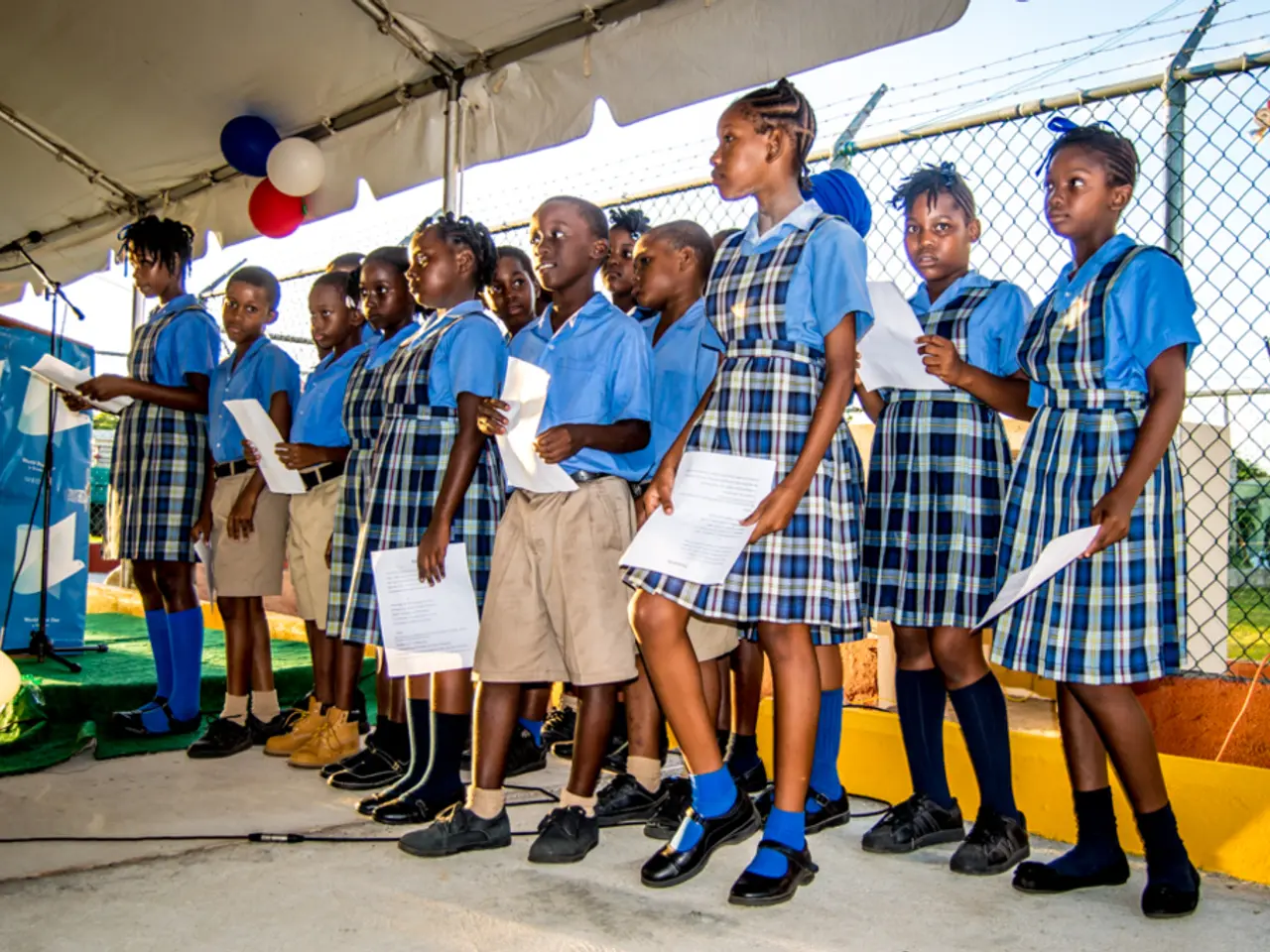Enhance Protections - Empowering Your Child through Fortification - Securing Safety: Tips for Building Resilience in Your Child
In the heart of Baden-Württemberg, Karlsruhe, parents are encouraged to take proactive steps in safeguarding their children from abuse. This involves open communication, age-appropriate education, practiced safety measures, and supportive family environments.
Open communication is key. Parents should maintain ongoing, honest, and age-appropriate dialogues with their children about their feelings, bodies, and relationships. Establishing trust ensures that children feel safe to report discomfort or abuse without fear or shame. Clear language is used to discuss personal boundaries and privacy.
Child-focused education is another essential strategy. Children should be taught about their rights to say "no" to uncomfortable situations or physical contact. Conversations should be tailored to the child's developmental stage, with young children learning to identify safe adults and body parts, while older children and teens are taught about consent, internet safety, and peer pressure.
Practicing safety measures is crucial. Parents should role-play scenarios with children, helping them practice refusing unsafe requests and identifying trusted adults. Families can implement routines and safety plans, including supervision guidelines and safe environments both at home and outside. Knowing when and how to report suspected abuse is critical; parents should trust their instincts, document concerns, and contact local child protection authorities promptly if abuse is suspected.
Strengthening families is also important. Reducing parental stress through policies supporting financial stability, flexible work, and access to quality childcare decreases abuse risk by improving familial environments. Parents benefit from training in positive discipline and emotional regulation to foster nurturing relationships that prevent abuse.
While local-specific resources in Karlsruhe were not detailed in the search results, parents can apply these general principles and seek local support through child protection services, family counseling centers, and educational programs offered within Germany’s child welfare structures.
It's important to emphasize that children should know that it's okay to say "no" to adults. The Police Crime Prevention of the Federal and State Governments advises parents to practice saying "No, I don't want to!" with their children. Children should also be taught that promises of rewards like sweets or cute animals from strangers are not to be trusted.
Seeking help in dangerous situations is seen as brave, not as tattling or betrayal. This message is reinforced by the "I Say" initiative against sexual harassment in swimming pools. Children should have their parents' or another trusted person's phone number memorized or written down, as suggested by the "Missing Children" initiative.
Regular discussions about potential dangerous situations should occur between parents and children, without causing fear. Children should know important emergency numbers like 110 or 112, as advised by the "Missing Children" initiative.
Hans Matheis, head of the White Ring's external office in Karlsruhe, emphasizes the importance of children seeking help. Julia Wahnschaffe, managing director of the German Children's Fund Baden-Württemberg, advises parents to strengthen their children early on and communicate in clear, age-appropriate language about not interacting with strangers. Practicing saying "no" is important for children, as advised by Julia Wahnschaffe.
By combining these strategies, parents effectively prepare their children to prevent abuse across different developmental stages and situations. Children should be encouraged to make themselves known in any way possible if they find themselves in an emergency.






